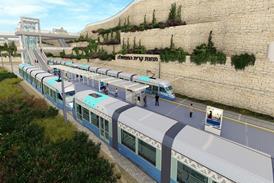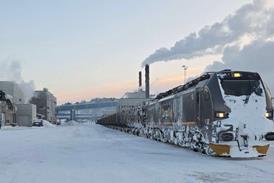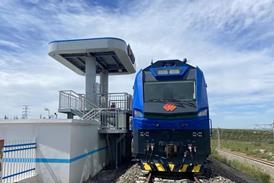WHAT ARE we to make of the veritable shambles which engulfed the UK rail network over the Christmas and New Year period? Three of Network Rail's major engineering projects over-ran, causing disruption and confusion for hundreds of thousands of passengers.
The Office of Rail Regulation announced on January 2 that it had launched an 'urgent investigation' into serious failures of planning and project management at NR. Previously extended to include December 31, the blockade for remodelling at Rugby in fact kept the important West Coast Main Line closed until January 4. A 10-day blockade to remove a redundant bridge and renew overhead lines on the approaches to Liverpool Street over-ran by a day, disrupting the return to work for London commuters on January 2. A 13-day line closure for resignalling Shields Junction on the approaches to Glasgow Central also over-ran by several days.
Passenger train operators complained that NR did not inform them about the over-runs until the very last minute, leaving them struggling to arrange replacement bus services. Some displaced passengers could use alternative routes, but not those with operator-specific discounted tickets. Freight operators were able to re-route their trains, but few of the diversionary routes could accept 9 ft 6 in high containers, leaving this important business to the road hauliers.
After urgent talks with the main contractors, Network Rail Chief Executive Iain Coucher told an emergency meeting of the company's Members (who act as substitutes for shareholders) on January 18 that a package of measures was being put in place to prevent any future recurrence.
NR will increase its in-house capability in specialist engineering disciplines, particularly overhead line engineers, and will 'oversee' the use of specialist engineering resources at a national level. With the contractors relying on agencies to supply up to 80% of the specialists for OLE work at both Rugby and Liverpool Street, Coucher said NR wanted to see a reduction in the use of agency staff. He envisages 'military-style command posts' and clearer lines of authority for major works, and closer involvement of the passenger and freight operators 'at every stage of a project'.
Coucher also wants to see the UK railways get back to operating 365 days a year, which will put further pressure on NR to manage its maintenance and renewals in a smarter way.
In a stroke of ill-timing, the over-runs coincided with the annual round of fare increases which saw some ticket prices rise by 10% or more. The Department for Transport wants ticket revenue to cover a greater percentage of industry costs, which have soared five-fold since privatisation. ORR is currently assessing NR's business plan for 2009-14, demanding greater efficiencies in both maintenance and major projects. If this fails, we could yet see a return to the policy of pricing off demand to avoid investment in extra capacity.
The UK rail industry faces some huge challenges. It must replace engineering and operating skills which haemorrhaged away following privatisation, improve the management of major projects and minimise the disruption of engineering work. And it needs to drive down costs, whilst capitalising on greater awareness of environmental and energy issues. This will require strong leadership, but it is far from clear whether today's fragmented structure will be able to deliver.
















